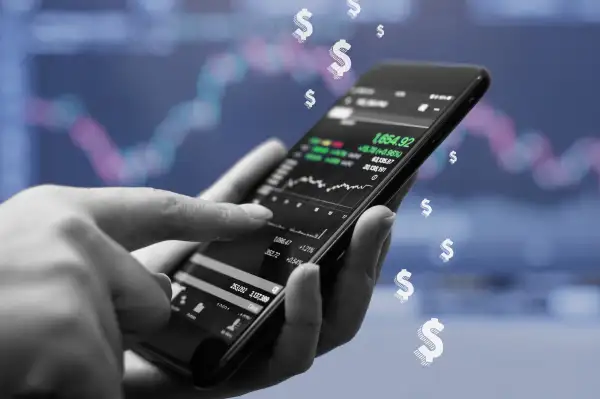Free Stock Trading Apps Like Robinhood Aren't Really Free, SEC Chair Says
Money is not a client of any investment adviser featured on this page. The information provided on this page is for educational purposes only and is not intended as investment advice. Money does not offer advisory services.

Stock trading apps like Robinhood have transformed the investing world over the last few years, touting that they let investors trade with no fees in seconds. But those "free" platforms don't offer entirely free stock trading, says Gary Gensler, chair of the U.S. Securities and Exchange Commission.
In an interview with New York Magazine, Gensler was asked about how payment for order flow — a method in which companies like Robinhood make money off of high-speed traders to whom they route customers’ orders — is often defended by the fact that it allows brokerages to offer free trading.
But free trading is not "free," Gensler said. "It is not free, and it costs everybody who goes on those platforms."
The SEC chair went on to say that the platform is both selling users' order flows and collecting users' data, and those paying for the order flow are getting the data.
"There’s an inherent conflict because your order — your buy or sell order — is not necessarily competing in the market," Gensler continued. "So it is anything but free."
Are free stock trading apps actually free?
When investors place market orders, they're essentially asking brokers to go into the market and match them with a seller at the best possible price. Since it would be difficult and inconvenient to find another small investor looking to sell a similar lot at the same time, they usually take the order to institutional investors, often hedge funds, known as market makers who keep large inventories of popular stocks ready to trade.
Market makers profit by charging small mark-ups — selling at a slightly above-market price and buying at a slightly below-market one — much like a bank when you exchange dollars for another currency. While the markups are typically just a few pennies per share, over time those premiums, known as and bid-ask spreads, can add up, eating into small investors' returns.
Robinhood and other apps don't charge individual investors commissions to trade, but market makers pay Robinhood for the privilege of handing its customers orders. This raises the prospect that Robinhood might steer investors to market makers who demand larger and more costly bid-ask spreads, but who nonetheless compensate Robinhood. (Robinhood has long insisted its business arrangements do not affect the prices at which its customer buy and sell.)
Payment for order flow is a common industry practice now. While many online brokers like Charles Schwab have historically charged commissions for trades, they've switched to this model around 2019 as "free" trading becomes the industry's norm. A few years ago, Schwab would have charged customers $4.95 for each and every trade. Now, there's no fee.
The practice of payment for order flow is legal, yet it is also controversial, and the SEC requires companies to regularly review and disclose details of their order flows. Robinhood settled claims from the Financial Industry Regulatory Authority in 2019 that it wasn’t receiving the best prices for orders for its customers. (The company's website says its systems are "built to automatically send your order to the market maker most likely to give you the best price" and it has since hired a former SEC commissioner as its chief legal officer.) In 2020, the SEC charged Robinhood with misleading its customers about how it makes money.
Gensler even told Barron's recently that a full ban of the practice was "on the table."
No matter the future of this industry practice, keep in mind that if you're not paying for a service, you're probably the product.
More from Money:
Here's How Much Money Robinhood Is Making off of You
Robinhood for Beginners: A Complete Guide to Investing With the Controversial Stocks App
Robinhood and Free Trades: What Every Investor Needs to Know
